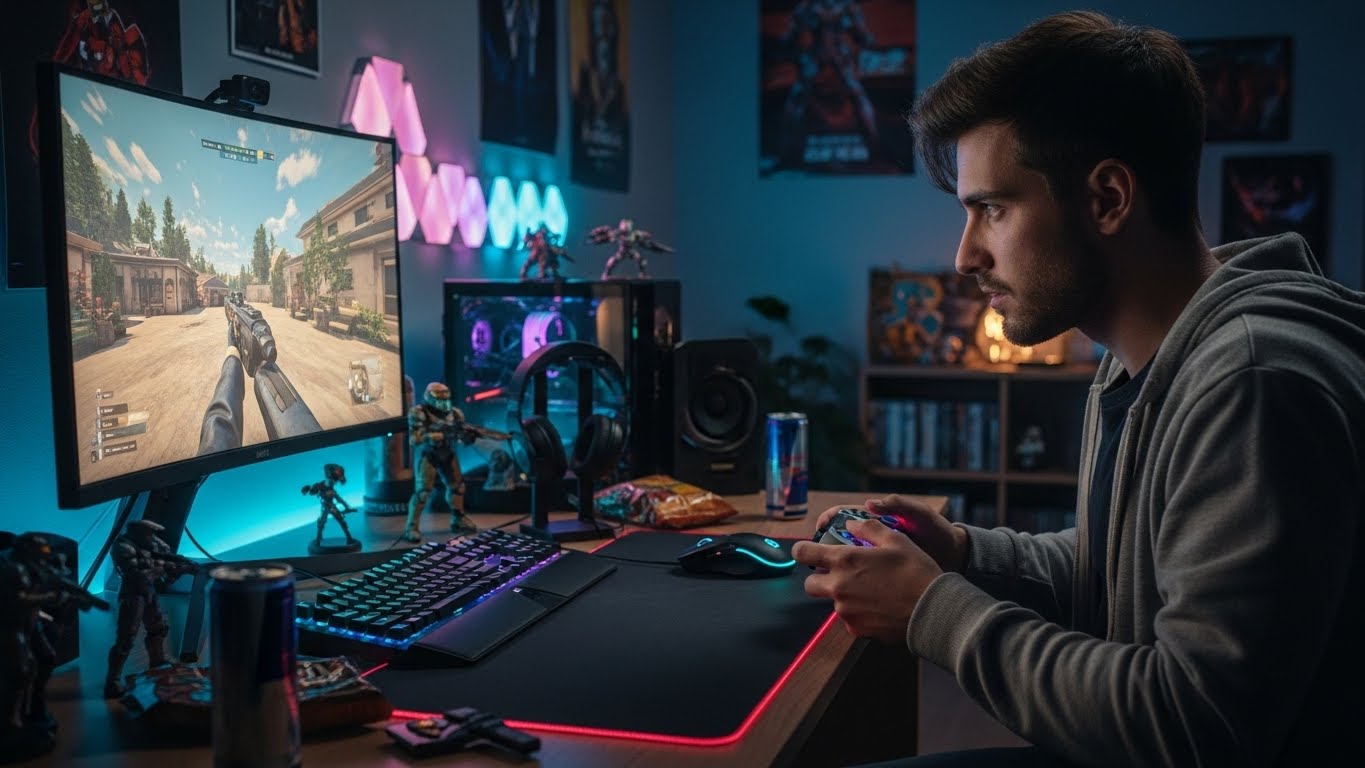Introduction
Gaming has grown from a simple pastime into a cultural powerhouse that influences entertainment, technology, and social interaction. Today, video games are more than just a way to pass the time—they are platforms for creativity, learning, and connection. From casual mobile games to immersive console and PC experiences, gaming continues to transform how people play, compete, and communicate.
The Evolution of Gaming
Video games have come a long way since the early days of arcade machines and pixelated graphics. Modern games offer rich storytelling, realistic visuals, and complex gameplay mechanics that immerse players in virtual worlds. Advancements in technology, such as virtual reality and cloud gaming, are taking the gaming experience to entirely new levels, making it more interactive, accessible, and exciting than ever before.
Cognitive and Educational Benefits
Gaming is not just entertainment—it can enhance mental skills. Many games challenge players to think critically, solve puzzles, and make fast decisions under pressure. Strategy and role-playing games improve problem-solving and planning, while simulation games encourage creativity and experimentation. Educational games also make learning fun, allowing players to explore subjects like history, science, and mathematics in an engaging and interactive way.
Building Social Connections
Online gaming has redefined how people connect with one another. Multiplayer games allow players to cooperate with friends or compete with gamers from around the world. Gaming communities provide a sense of belonging, where players can share experiences, strategies, and achievements. Esports tournaments and online competitions further strengthen social bonds and offer opportunities for collaboration and recognition.
The Rise of Esports
Esports has turned gaming into a professional arena. Competitive gaming attracts millions of viewers and offers players career opportunities as professional gamers, coaches, or content creators. Major tournaments and championships have elevated gaming to a mainstream form of entertainment, highlighting the skill, strategy, and dedication required to succeed in this rapidly growing industry.
Fostering Creativity Through Gaming
Many games encourage creativity and imagination. Sandbox and world-building games allow players to design entire environments, develop stories, and solve challenges in innovative ways. Gaming inspires artistic expression, critical thinking, and problem-solving, helping players develop skills that extend beyond virtual worlds into real-life applications.
Maintaining Balance in Gaming
While gaming offers numerous benefits, moderation is important. Excessive play can lead to fatigue, disrupted routines, and reduced social interaction. Balancing gaming with physical activity, education, work, and social life ensures that players enjoy the positives of gaming without negative consequences. Healthy gaming habits allow players to fully experience the entertainment, learning, and social benefits of video games.
Conclusion
Gaming has evolved into a transformative force in modern life, offering entertainment, education, and community. It challenges the mind, encourages creativity, and connects people across the globe. By embracing gaming responsibly, individuals can enjoy immersive experiences that inspire, educate, and bring people together. Video games are no longer just a hobby—they are a window into a dynamic, interactive, and ever-growing world of possibilities.



